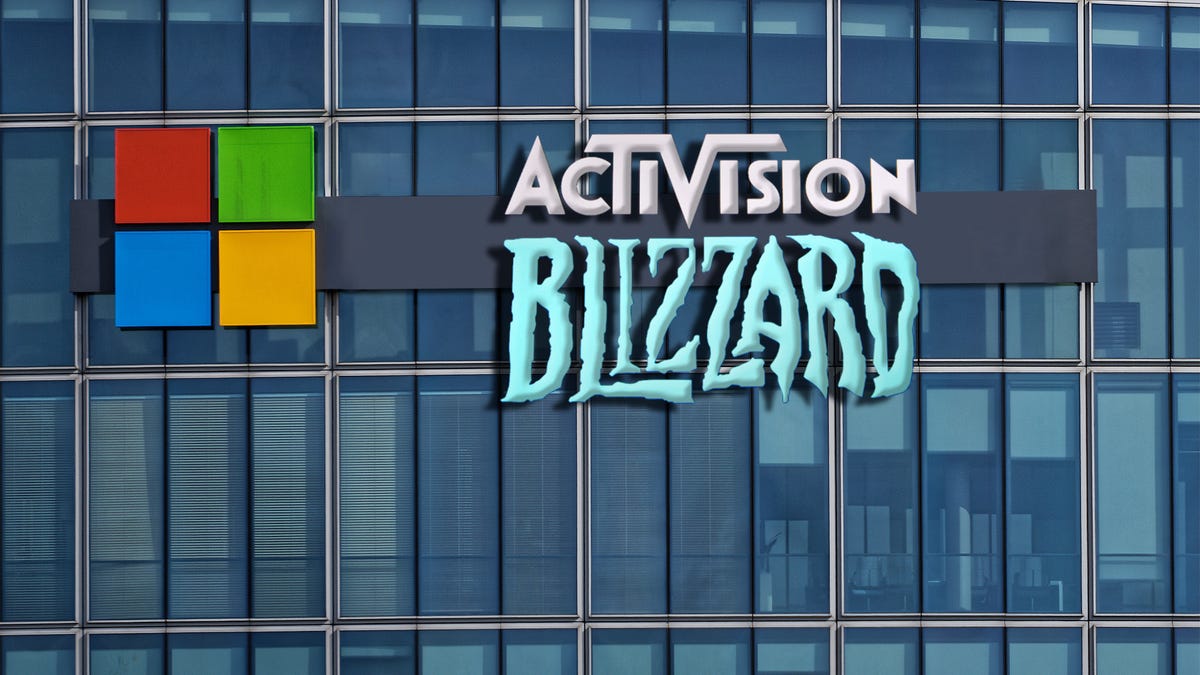FTC Reportedly Set to File Injunction to Block Microsoft Activision Deal: What to Know
Microsoft continues its fight to complete the $69 billion acquisition of game publisher Activision Blizzard, but the US Federal Trade Commission will reportedly add another obstacle in an attempt to block the deal.
The FTC will file an injunction Monday to stop Microsoft’s purchase of Activision before the July 18 deadline, according to a report from CNBC. This comes several months after the commission filed a lawsuit against Microsoft over the acquisition saying the deal would “enable Microsoft to suppress competitors to its Xbox gaming consoles and its rapidly growing subscription and cloud-gaming business.”
Microsoft first announced its plans to acquire Activision Blizzard in January 2022. Closing the deal would turn Xbox maker Microsoft into one of the top three video game publishers, right behind rival Sony. Activision Blizzard is one of the largest third-party publishers, with some major franchises that would give a much-needed boost to Microsoft’s games catalog, including Call of Duty, Candy Crush and Overwatch.
Though Microsoft has won a few merger-related battles recently, it still has a few more hurdles to clear before the deal is done.
Who’s left to approve the deal?
Microsoft still has to receive approval from regulators in the US. The FTC’s lawsuit from December and the injunction on Monday hamper the deal from receiving approval. A hearing is set for Aug. 2 regarding the lawsuit.
The UK is another major country that has yet to sign off on the deal. In April, the UK’s Competition and Markets Authority blocked the $69 billion deal, saying it would result in higher prices and fewer choices for gamers. Microsoft’s appeal to the ruling says the CMA “made fundamental errors in its calculation and assessment of market share data for cloud gaming services by failing to take account of constraints from native gaming (whereby gamers access games installed on their devices through a digital download or physical disc).”
Microsoft has continued to deny that the deal would hamper competition within the video game industry and continues to negotiate with regulators to get approval.
What does this deal mean for gamers?
For Xbox Game Pass subscribers, the deal means Activision Blizzard’s catalog of games will be incorporated into the service, likely similar to how Bethesda games were when Microsoft acquired that company in 2020.
How gamers who don’t have an Xbox, and instead use a Sony PlayStation or Nintendo Switch console, will be impacted is less clear. Critics of the deal are concerned that Microsoft could make future games developed by Activision unavailable on rival consoles. (Microsoft did just this for game developed by Bethesda.) This is especially concerning for a major Activision title like Call of Duty.
Microsoft already agreed to a 10-year deal with Nintendo to bring Call of Duty games to its consoles, but Sony reportedly rejected a similar agreement. Sony remains against the deal and continues to submit filings to regulators about its concerns over the acquisition.
What is cloud gaming?
Cloud gaming is the technology to stream video games remotely to a device such as a phone, tablet or smart TV. While the technology has been around for more than a decade, it’s only in recent years has it really taken off thanks in part to it being an added feature for Microsoft’s Xbox Game Pass and Sony’s PS Plus.
Other companies developed their own cloud gaming services, such as Amazon’s Luna and GeForce Now. The former made an agreement with Microsoft in February to bring more of its games to the service over the course of the next 10 years.
For all the latest world News Click Here

